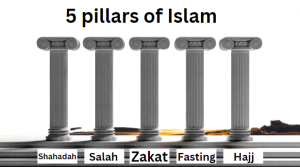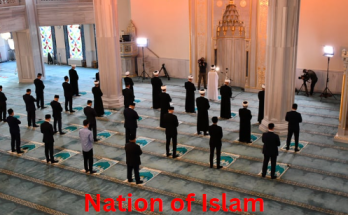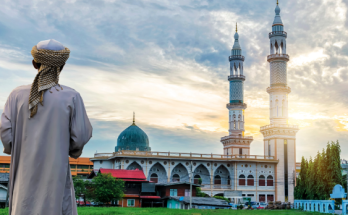الأركان الخمسة للإسلام في الترتيب
الإسلام، وهو أحد أكبر الديانات في العالم، يستند إلى مجموعة من القواعد والمبادئ التي يجب على المسلمين اتباعها. تتألف هذه المبادئ من خمسة أركان رئيسية تُعرف بأركان الإسلام الخمسة. تم تحديد هذه الأركان في القرآن الكريم وتعتبر أساسًا للعبادة والعلاقة بين المؤمن وربه. سأقدم لكم هنا الأركان الخمسة للإسلام وفقًا للترتيب الذي جاء بها في الدين الإسلامي.
الشهادتان:1
أول ركن من أركان الإسلام الخمسة هما الشهادتان. الشهادتان هما اعتراف بوحدانية الله وبرسالة محمد صلى الله عليه وسلم كرسول الله. يتعين على المسلمين إقرار هاتين الشهادتين بصدق وإخلاص. تقول الشهادة الأولى “أشهد أن لا إله إلا الله وأشهد أن محمدًا رسول الله”، وتعني أنه لا يوجد إله سوى الله وحده، ولا يشرك به أحد، وأن محمد صلى الله عليه وسلم هو الرسول المبعوث من قبل الله لتوصيل رسالته إلى البشرية.
الصلاة:2
الصلاة هي الركن الثاني من أركان الإسلام الخمسة. تعتبر الصلاة من أعظم العبادات في الإسلام وتقام للتواصل المباشر مع الله. يجب على المسلمين أداء الصلاة خمس مرات في اليوم والليلة وفقًا للأوقات المحددة. تشمل الصلاة تلاوة القرآن الكريم والركوع والسجود والتشهد، وتتضمن أيضًا الدعاء الشخصي والتضرع إلى الله بالخير والبركة والمغفرة. يُعتبر أداء الصلاة فريضة مهمة تعزز الروحانية وتعبد الله وتؤدي إلى تعزيز الانضباط الذاتي والتواصل مع الخالق.
الزكاة:3
الزكاة هي الركن الثالث من أركان الإسلام الخمسة. تعني كلمة “زكاة” النمو والتطهير. تُعد الزكاة واجبًا على المسلمين الأغنياء نحو المحتاجين والفقراء والمساكين في المجتمع. يتعين على المسلم دفع نسبة معينة من ثروته السنوية لتوزيعها على الأشخاص المستحقين والجماعات الأكثر فقرًا. يهدف الزكاة إلى تحقيق العدالة الاجتماعية وتوزيع الثروة بشكل متوازن في المجتمع. إن الزكاة تعزز التكافل الاجتماعي والرحمة والشفقة تجاه الآخرين وتعزيز المساواة الاقتصادية.
الصيام:4
الصيام هو الركن الرابع من أركان الإسلام الخمسة. يجب على المسلمين الصوم خلال شهر رمضان، وهو شهر هام في التقوى الدينية والتأمل والتحكم في الشهوات الجسدية. يجب على المسلمين الامتناع عن الأكل والشرب والجماع الجنسي والتصرفات غير المشروعة من فجر حتى غروب الشمس خلال شهر رمضان. يُعتبر الصيام فرصة للتطهر الروحي وتعزيز الانضباط الذاتي والتعاطف مع الفقراء والجوعى وتقوية العلاقة بين الإنسان والله. كما يعتبر الصيام أيضًا فرصة لتقدير النعم التي يتمتع بها المسلمون ولتعزيز الصبر والتفاني والتقرب إلى الله من خلال الصلاة والقراءة والتلاوة والتسبيح والتذكير بالله.
الحج:5
الحج هو الركن الخامس والأخير من أركان الإسلام الخمسة. يجب على المسلمين القادرين المالياً والصحياً أداء فريضة الحج مرة واحدة في العمر، وذلك بزيارة مكة المكرمة في المملكة العربية السعودية. يتضمن الحج أداء مجموعة من الطقوس والشعائر في الأماكن المقدسة، بما في ذلك طواف الكعبة والسعي بين الصفا والمروة والوقوف بعرفة ورمي الجمرات. يهدف الحج إلى تعزيز الوحدة والتواصل الإنساني بين المسلمين من جميع أنحاء العالم وتعبئة الروحانية الدينية. يعتبر الحج تجربة روحية هامة ومناسبة لتجديد النية وتوبة الذنوب والاستغفار وتعزيز العلاقة القوية مع الله.
تلك هي الأركان الخمسة للإسلام وفقًا للترتيب الذي جاء بها في الدين الإسلامي. يجب على المسلمين السعي للامتثال لهذه الأركان واتباعها بإخلاص وتفانٍ. يعتقد المسلمون أن الامتثال لهذه الأركان يساعدهم على تحقيق السعادة الروحية والعبودية الحقيقية لله والتوازن في حياتهم الدنيوية والآخرة. إن الأركان الخمسة تمثل قاعدة قوية للإيمان والعمل الصالح، وتوجه المسلمين للتطور الروحي والتقدم الشخصي والمشاركة الفعالة في بناء المجتمع وتحقيق العدالة والسلام.
The five pillars of Islam in order
Islam, which is one of the largest religions in the world, is based on a set of rules and principles that Muslims must follow. These principles consist of five main pillars known as the Five Pillars of Islam. These pillars are defined in the Holy Qur’an and are considered the basis of worship and the relationship between the believer and his Lord. Here I will present to you the Five Pillars of Islam according to the order in which they are presented in the Islamic religion.
1.The two testimonies:
The first of the five pillars of Islam are the two testimonies. The two testimonies are an acknowledgment of God’s unity and the message of Muhammad, may God bless him and grant him peace, as God’s Messenger. Muslims are required to acknowledge these two testimonies truthfully and sincerely. The first shahada says, “I bear witness that there is no god but God, and I bear witness that Muhammad is the Messenger of God.” It means that there is no god but God alone, and no one associates Him with Him, and that Muhammad, may God’s prayers and peace be upon him, is the messenger sent by God to deliver his message to humanity.
2.the prayer:
Prayer is the second of the five pillars of Islam. Prayer is considered one of the greatest acts of worship in Islam and is held for direct communication with God. Muslims must perform prayers five times a day and night according to the set times. Prayer includes recitation of the Holy Qur’an, bowing, prostration, and tashahhud. It also includes personal supplication and supplication to God for goodness, blessing, and forgiveness. Performing prayer is an important ritual that promotes spirituality, worships God, and leads to enhanced self-discipline and connection with the Creator.
3.Zakat:
Zakat is the third of the five pillars of Islam. The word “zakat” means growth and purification. Zakat is the duty of affluent Muslims towards the needy, the poor, and the needy in society. A Muslim is required to pay a certain percentage of his annual wealth to be distributed among the deserving persons and the poorest groups. Zakat aims to achieve social justice and distribute wealth in a balanced manner in society. Zakat promotes social solidarity, compassion and compassion towards others, and promotes economic equality.

4.Fasting:
Fasting is the fourth of the five pillars of Islam. Muslims are required to fast during Ramadan, which is an important month of religious piety, meditation and control of carnal desires. Muslims must refrain from eating, drinking, sexual intercourse, and illegal behavior from dawn until sunset during Ramadan. Fasting is seen as an opportunity for spiritual purification, promoting self-discipline, empathizing with the poor and hungry, and strengthening the relationship between man and God. Fasting is also an opportunity to appreciate the blessings that Muslims enjoy and to promote patience, devotion and closeness to God through prayer, reading, recitation, praise and remembrance of God.
5.Pilgrimage:
Hajj is the fifth and final of the Five Pillars of Islam. Muslims who are financially and physically able must perform Hajj once in their lifetime, by visiting Makkah Al-Mukarramah in the Kingdom of Saudi Arabia. Hajj involves performing a range of rites and rituals at holy sites, including circumambulating the Kaaba, running between Safa and Marwa, standing at Arafah, and stoning the Jamarat. The pilgrimage aims to promote unity and human connection between Muslims from all over the world and to mobilize religious spirituality. The pilgrimage is an important and appropriate spiritual experience to renew one’s intention, repent of sins, seek forgiveness, and strengthen a strong relationship with God.
These are the five pillars of Islam according to the order in which it came in the Islamic religion. Muslims should strive to comply with these pillars and follow them with sincerity and devotion. Muslims believe that compliance with these pillars helps them achieve spiritual happiness, true servitude to God, and balance in their worldly and hereafter lives. The five pillars represent a strong foundation for faith and good deeds, and guide Muslims for spiritual development, personal advancement, and effective participation in building society and achieving justice and peace.


